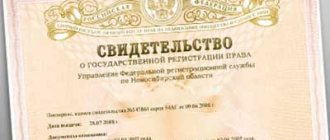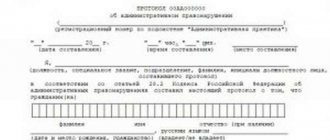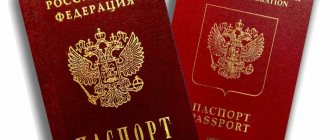All of us are familiar with purchase and sale transactions. Every Citizen of the Russian Federation has the right to sell and buy property. Usually, both the buyer and the seller are personally present during the transaction.
In this article, we will analyze the process of selling an apartment, in which the seller cannot be present at the place of the transaction (perhaps he is not in the city/country or due to health reasons is not able to come in person). In this case, the law provides for a solution in the form of signing powers of attorney for a certain third party.
What is a power of attorney?
A power of attorney is a special document in which you attribute certain powers and their scope to certain third parties. In accordance with Russian legislation, a power of attorney can be certified by a notary or simply registered.
What types of powers of attorney are there?
This document comes in three types:
- One-time
As the name implies, this type of power of attorney gives authority to perform any action only once. For example, such documents can be used to obtain funds one-time.
- Special
In such a power of attorney, the powers of the trustee are strictly prescribed. A person can perform several legal procedures of the same nature within a prescribed period of time. For example, issuing certificates, receiving goods.
- General (general)
In this document, you assign all powers to a third party, and this person has full control over all rights. Such powers of attorney must be signed if any transactions cover a wide legal area and many areas. The authorized person manages the property and can make purchase and sale transactions.
If you sell an apartment, you will need a general power of attorney.
What is a notarized power of attorney
This is a document authorizing the trustee to perform the necessary actions on behalf of the principal and in his interests. This document has been quite in demand at any time, since solving many life situations requires the help of outsiders.
There are various types of power of attorney, as it is issued for various transactions with real estate, documents, material assets and funds.
In addition, representation of interests or driving of transport is carried out by proxy. So the document can be either notarized or simply written out by the owner of the property, taking into account all the nuances of its preparation.
In addition, it can be issued to perform any one stage, and at the end of the action it simply ceases to operate, or for a long period to complete the entire process.
You can find out how to issue a power of attorney and what you need to pay attention to here:
The legislative framework
Regarding representation in the Civil Code, there is a whole list of articles from 182 to 189.
Article 182. Representation
1. A transaction made by one person (representative) on behalf of another person (represented) by virtue of authority based on a power of attorney, an indication of the law or an act of an authorized state body or local government body directly creates, changes and terminates the civil rights and obligations of the represented . Authority may also be evident from the environment in which the representative operates (retail salesperson, cashier, etc.). 2. Persons who act, although in the interests of others, but on their own behalf, persons who only convey the will of another person expressed in proper form, as well as persons authorized to enter into negotiations regarding possible future transactions, are not representatives. 3. A representative cannot make transactions on behalf of the represented person in relation to himself personally, as well as in relation to another person whose representative he is at the same time, except for cases provided for by law. A transaction that was made in violation of the rules established in paragraph one of this paragraph, and to which the principal did not give consent, may be declared invalid by the court at the request of the principal if it violates his interests. Violation of the interests of the represented person is assumed unless proven otherwise. 4. It is not allowed to carry out a transaction through a representative, which by its nature can only be completed in person, as well as other transactions specified in the law.
The issuance of a notarized power of attorney is carried out in accordance with clause 1 of Art. 146 Civil Code of the Russian Federation, paragraph 3 of Art. 187 of the Civil Code of the Russian Federation, which detail cases when a power of attorney must be certified by a notary.
Article 187. Transfer of trust
1. The person to whom the power of attorney has been issued must personally perform those actions for which he is authorized. It can entrust their execution to another person if it is authorized to do so by a power of attorney, and also if it is forced to do so by force of circumstances to protect the interests of the person who issued the power of attorney and the power of attorney does not prohibit the entrustment. 2. A person who has delegated powers to another person must notify the person who issued the power of attorney about this within a reasonable time and provide him with the necessary information about the person to whom the powers have been transferred. Failure to fulfill this obligation makes the person who delegated the authority responsible for the actions of the person to whom he delegated the authority as if it were his own. 3. A power of attorney issued by way of delegation must be notarized. The rule on notarization of a power of attorney issued by way of delegation does not apply to powers of attorney issued by way of delegation by legal entities, heads of branches and representative offices of legal entities. 4. The validity period of a power of attorney issued by way of subrogation cannot exceed the validity period of the power of attorney on the basis of which it was issued. 5. Transfer of trust is not allowed in the cases provided for in paragraph 3 of Article 185.1 of this Code. 6. Unless otherwise specified in the power of attorney or established by law, a representative who has transferred powers to another person by way of delegation does not lose the corresponding powers. 7. The transfer of powers by a person who received these powers as a result of a delegation to another person (subsequent transfer) is not allowed, unless otherwise provided in the initial power of attorney or established by law.
What are the differences
There are no special differences in the text of the document; in this case, the power of attorney is formed in the same way as a regular one, only a special stamp form is used to draw it up from a notary.
In addition, the power of attorney has a certification record in which the specialist certifies the legal capacity and capacity of the principal, and also affixes a seal and his signature.
How to obtain a power of attorney?
Photo Pexels
A general power of attorney is a document that has great notarial and legal force. To obtain such a power of attorney, you need to go to a notary’s office, where a notary will draw up this document especially for you.
To transfer all rights to a trusted person, the agent of the notary office will need:
- Full details of the principal (that is, yours). These are documents such as passport details.
- Certificate of ownership of property (in this case, an apartment).
- A document confirming the transfer of property to you (deed of gift, purchase and sale agreement, certificate of inheritance).
- Certificate of absence of debts for utility services.
- Apartment address
- If you are married, a written agreement from your partner.
- You will definitely need the passport (or a copy thereof) of the authorized person.
- If the home is owned by a person under 18 years of age, the person can sign a power of attorney only after the written consent of the guardian.
What is an electronic power of attorney?
Electronic power of attorney is a topic of discussion between lawyers.
It is now recognized that it has a similar legal effect to a written power of attorney..
This conclusion follows from the meaning of provisions No. 1-FZ 2002, No. 149-FZ (Article 11, paragraph 3).
In addition, one should focus on the Civil Code of the Russian Federation, in particular, Art. 434.
An article of the Civil Code of the Russian Federation determines that a written agreement is drawn up in the form of a single document or its exchange through different types of communication.
The document is ratified by the parties. An electronic document contains information transmitted through one of the communication channels.
Information in an electronic document must be suitable for human perception. Thus, not only information put on paper can be considered suitable for perception, but also on computer media . One part of an electronic document includes digital signatures.
An electronic document , in order to acquire a similar legal status (as a paper medium), must meet the following requirements :
- information on computer media must be immutable;
- the text must be formatted in accordance with existing standards;
- All details must be displayed in the document.
An electronic signature guarantees that the information contained in the document remains unchanged.
When conducting civil transactions, the use of an electronic signature in documents of the same form is equivalent to a signature in your own hand on paper.
Registration of a power of attorney
To issue a power of attorney, you do not need to look for any sample documents yourself. A power of attorney is a document that has no legal force unless certified by a notary. In other words, you cannot write a power of attorney by hand; you must contact a specialist.
The notary reviews all documents and verifies your identity. Afterwards, following a special template, he fills out all the necessary papers, taking into account the number of delegated powers and the specifics of the transaction. Afterwards, if the terms of the contract suit you, you sign this document. After signing the document, the notary enters it into the register.
If the property has multiple owners, all owners must sign a power of attorney. If the owner is divorced, the former spouse must sign the agreement to complete the transaction. This is done because an apartment purchased during marriage is considered joint property and the ex-spouse has the right to housing.
If the owner is incapacitated at the time of execution of the power of attorney, the document is signed by the guardian (in fact, protecting the interests of the incapacitated person is his direct responsibility).
The register is a single resource where the facts of the use of invalid documents are checked.
The participation of a third (trusted) person in the registration process is optional.
Following the legislation of the Russian Federation, powers of attorney do not have a specific validity period. You can choose the period of validity of the documents yourself. Often a general power of attorney is issued to conduct purchase and sale transactions, so you can indicate that the document will become invalid immediately after the end of the process. But if you did not write the validity period, then the power of attorney will remain valid for a year.
But under certain conditions, the power of attorney may expire earlier. For example, if you change your mind about selling your home or one of the parties is declared incompetent by the court.
Duration of the power of attorney
#1 Elmas Elmas —>
#2 Antiprav Antiprav —>
#3 LOV LOV —>
#4 Elmas Elmas —>
#5 Alderamin Alderamin —>
Now, if the power of attorney was issued on January 1, 2011 and its validity period is indicated “from January 1, 2012 to December 31, 2014,” then for what period will this power of attorney actually be valid?
In the specified. The rest will be unrealistic.
Is it even possible to issue powers of attorney for the future? What does the term for all powers of attorney include - 3 years? Is it not calculated from the date of issue?
#6 Elmas Elmas —>
#7 Alderamin Alderamin —>
Firstly, there is a period of validity of the power of attorney, and there is a period of validity of powers, which should not exceed the first.
From what did you conclude about the difference between these terms?
It means that the power of attorney begins to be valid from the next day of its execution (Article 191. The period determined by the period of time begins the next day after the calendar date or the occurrence of the event that determines its beginning), that is, from January 2, 2004 until January 02, 2007. The remaining period from January 2 to December 31 is no longer taken into account.
I think that such a power of attorney, which actually has the “right to life” for 4 years (from January 1, 2005 to December 31, 2007), will most likely be recognized as invalid in practice.
Please quote the place in the law where it is written about the “right to life” in relation to a power of attorney.
The permit is issued to a capable person, and by issuing it for the future, you have no guarantee that in a year the citizen to whom you entrust your rights will not lose his mind)))
How to revoke a power of attorney?
Photo by Pexels
The principal must contact the notary who drew up the power of attorney with a statement. If you need to revoke a power of attorney urgently, and it is not possible to meet with a notary, you are allowed to use the services of another specialist. The application must indicate the intention to cancel this document. The notary must announce to all participants in the transaction who signed the power of attorney about the owner’s intentions. Also, the notary must note in a special register (see above) the cancellation of the power of attorney, so that in the event of a subsequent sale of the property, the owner will not have any problems.
You can also inform about the cancellation of a document yourself orally or in writing.
Content
This type of document - power of attorney - must contain the following mandatory details:
- Name.
- Date of compilation: it will be indicated in words or numbers - it does not matter. Without it, the powers will be insignificant.
- Information about the principal, representative. If the document is executed between individuals, then it is usually limited to full name. citizen, date and place of birth, passport details. If the information is provided incompletely, this is not a reason to invalidate the transaction.
- Transferable powers.
- Trustee's signature. Without this requisite, the document will also be void. If a person has a physical disability or is illiterate, he can use the help of a handcuff in accordance with the requirements of the law. A seal impression is required for legal entities.
Optional details that can be specified in the power of attorney are:
- place where the document was created;
- term of office;
- an indication of the possibility of reassignment.
Although it is not necessary to write out these points, it is advisable, since this is entirely in the interests of the principal. Will allow you to avoid unnecessary disputes and litigation.
It is worth noting that some authorities, such as the post office or pension funds, often ask to indicate separately the rights to represent their interests.
There are also certain requirements for authority:
- must be specific, legal and realistic;
- cannot exceed the boundaries of a person’s legal capacity;
- the law may provide for separate requirements for them (for example, for making a donation, when drawing up a judicial power of attorney, etc.);
- if the subject of the transaction is property, you need to indicate its characteristics (address, area, cadastral number, etc.).
Cost of power of attorney
Everything here is quite individual and depends on the specific region, but on average, prices for this type of power of attorney (general) start from 2,000 rubles and above.
The cost of a power of attorney consists of:
- state fees for the service.
Depends on the relationship between the owner and the trustee. If a relative (son, father, nephew) becomes the third party, the cost of the fee is 100 rubles. If a friend, colleague (or other acquaintances) becomes the third party, the cost will be increased to 500 rubles.
- fees for performing technical and legal services.
It is also worth remembering that the more powers you give to a third party, the more expensive the power of attorney will be.
To whom are powers of attorney issued?
You can issue a power of attorney to anyone. This could be your partner, relative, friend or colleague.
When signing a power of attorney, you must be completely confident in the honesty of your representative, since you are transferring a lot of rights to him. It is better to make relatives and close friends your confidante, that is, people you have known for a very long time.
It is worth considering that by giving a person, by proxy, the right to enter into all kinds of transactions with property on his own behalf and subsequently register the transfer of ownership, the principal, in fact, can no longer strictly control how the proxy will manage his real estate (sell it or even give it away for nothing) ), what amount he will value and what he will purchase from the buyer.
Definition of the notarized form of power of attorney
People in practice have greater confidence in the notarial form of a document.
That is why people turn to a notary even in situations where this is not required, and you can safely do without this procedure. Many are guided by the fact that a specialist will help draw up a document correctly, without defects and errors. A power of attorney is a document that can only exist in written form. To carry out transactions requiring a notarized form, the power of attorney must be notarized, except in cases specified by law.
Paragraph 3 of Article 185 of the Civil Code of the Russian Federation (hereinafter referred to as the Civil Code) establishes that the following are equated to notarized powers of attorney:
- powers of attorney of military personnel and other persons undergoing treatment in hospitals, sanatoriums and other military medical institutions, certified by superiors, their deputies for medical affairs, a senior or duty doctor;
- powers of attorney of military personnel, and at points of deployment of military units, formations, institutions and military educational institutions, where there are no notary offices and other bodies performing notarial acts, also powers of attorney of workers and employees, members of their families and family members of military personnel, certified by commanders (supervisors) these units, formations, institutions and establishments;
- powers of attorney of persons in places of deprivation of liberty, certified by the heads of places of deprivation of liberty;
- powers of attorney of adult capable citizens located in social protection institutions, certified by the administration of this institution or the head (his deputy) of the relevant social protection body.
Powers of attorney issued:
- to receive wages and other payments related to labor relations;
- to receive remuneration for authors and inventors, pensions, benefits and scholarships, citizens’ deposits in banks;
- to receive correspondence, including cash and parcels,
can also be certified by the organization in which the principal works or studies, the housing maintenance organization at his place of residence and the administration of the inpatient medical institution in which he is being treated, and powers of attorney for receiving correspondence - by communication organizations. A power of attorney for a citizen’s representative to receive funds from his bank account can be certified by the relevant bank.
The following powers of attorney are subject to notarization:
- to submit an application and documents for cadastral registration, registration of rights and for transactions requiring a notarial form;
- to dispose of rights registered in state registers;
- for a representative to carry out a transaction with an object of real estate or a transaction on the basis of which the right, restriction or encumbrance of the right to an object of real estate is subject to registration, the application for registration of which is submitted by mail.
As mentioned above, in cases where the law requires it, the power of attorney must be in notarized form.
Types of powers of attorney.
Let's consider the most common situations when the lack of a notarial form of a document on the basis of which powers are transferred can become an obstacle to the implementation of certain actions.
If you can't decide whether you need to draw up an agreement or a contract, read this.
If a party to such a transaction is a trustee, then a notarized power of attorney must be issued to the trustee. An example is the conclusion of a real estate pledge agreement, an agreement on the assignment of rights, rent, etc.
If a transaction requiring state registration is carried out not by the copyright holder himself, but by a person representing his interests, then a notarized power of attorney must be issued to this person, which must necessarily provide for the right to dispose of this property.
An example is a transaction to register rights to real estate (registration of a purchase and sale agreement for a land plot, house, etc.).
You want to open an LLC, but you are afraid. Read this and your fears will go away.
In situations related to the registration of rights to movable property by a person who is not the owner of this property, you will need a power of attorney, which has a notarized form. Such situations, for example, include a transaction for the purchase and sale of a vehicle, the commission of actions to register the vehicle with the state.
You have problems with your boss regarding payment for your work, then read the article Non-payment or delay of wages: where to go? and you will immediately have an action plan.
In the case of a minor child being taken outside the country by an accompanying person or one of the parents, a notarized consent (power of attorney) is required from the second parent or on behalf of both parents.
Retrust
If the powers provided for by the power of attorney are planned to be subsequently transferred to a third party (to be transferred), then such a power of attorney must be notarized. In the absence of notarization, a person does not have the right to make a delegation under this power of attorney.








